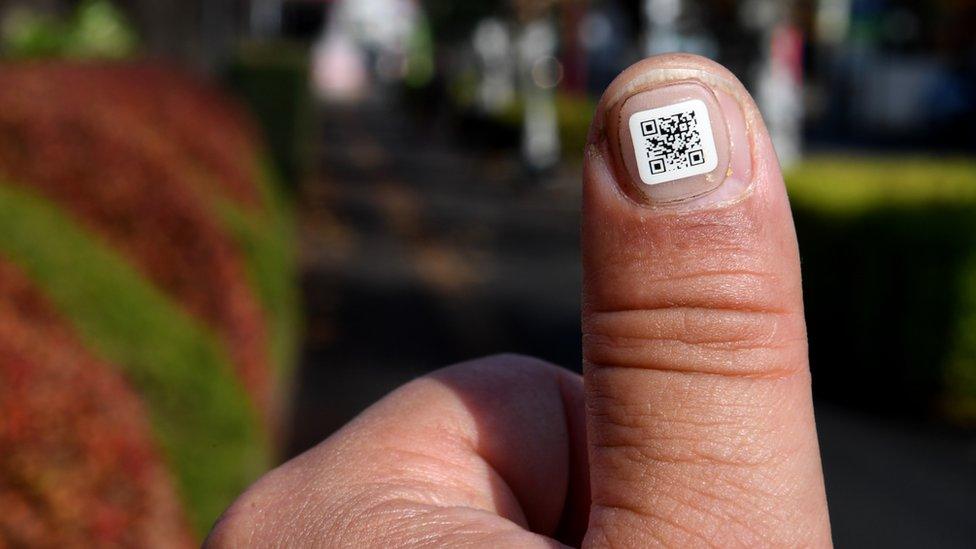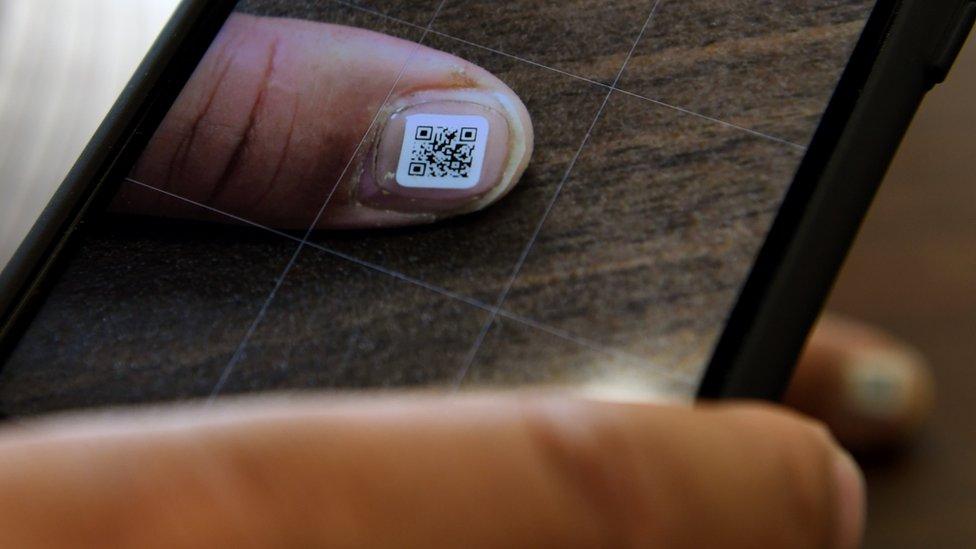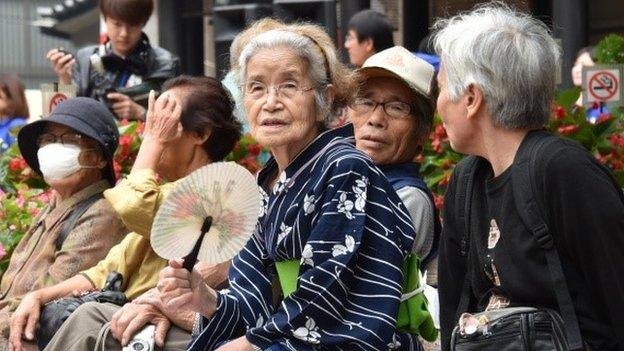Japan tracks dementia patients with QR codes attached to fingernails
- Published

The stickers, which contain the unique details of a individual user, are attached to fingernails
A Japanese city is keeping track of elderly people with dementia by attaching barcodes containing personal information to their fingers and toes, officials say.
A company in Iruma, near Tokyo, has developed a tagging system for members of the public at risk of getting lost.
The 1cm (0.4in) square stickers hold an address, telephone number and unique identity number for each user.
The free service, launched this month, is a first for Japan.
The initiative, which uses a system of QR codes, was set up to help reunite family members with their elderly loved ones in the event that they go missing, according to the Iruma welfare office.

The water-resistant seals remain attached for an average of two weeks, according to officials
The technology allows police to obtain details of a person's local city hall, along with contact telephone numbers and personal details, simply by scanning the code.
An official told the AFP news agency that this new method was a "great advantage".
"There are already ID stickers for clothes or shoes but dementia patients are not always wearing those items."
The water-resistant stickers, which remain attached for an average of two weeks, can be more discreet than other items such as badges as they can be attached to toenails and worn beneath socks.
Japan is facing an ageing population, with more than a quarter of its citizens aged 65 or over.
This is set to increase to 40% by 2055, with the population expected to shrink from the current 127 million to 90 million.
- Published7 December 2016

- Published16 March 2015
